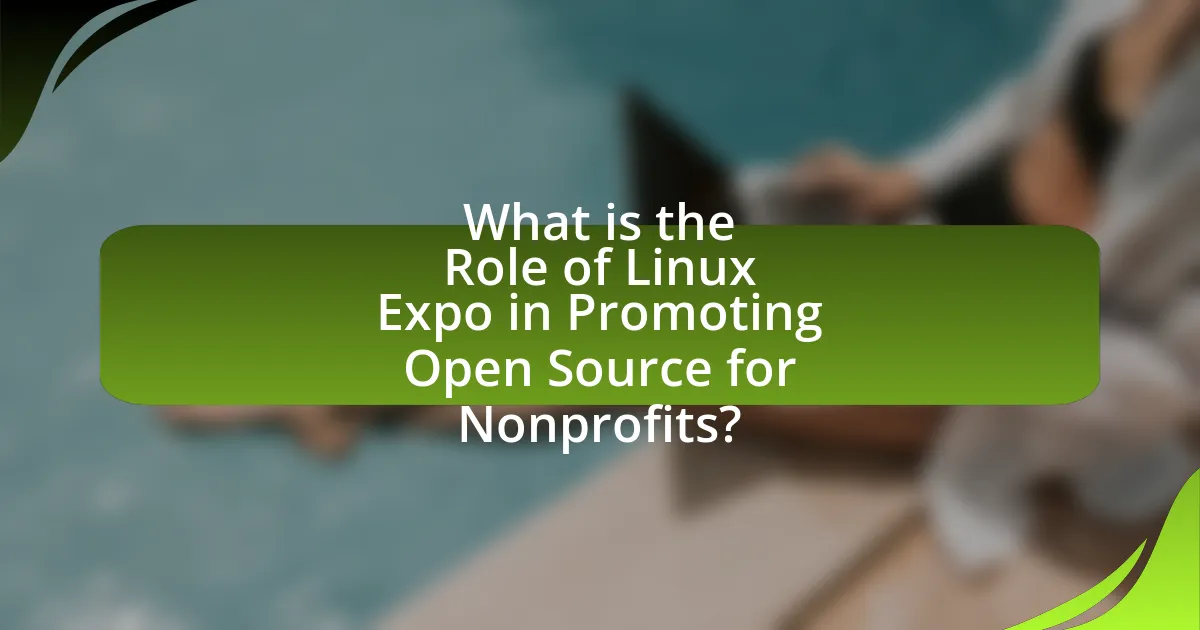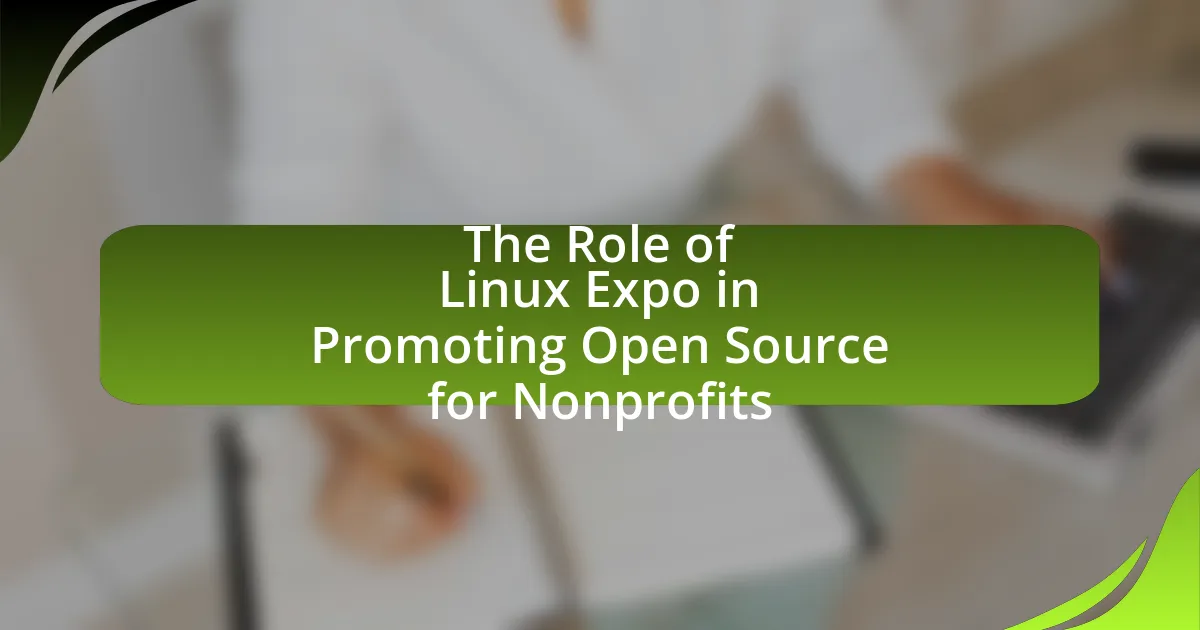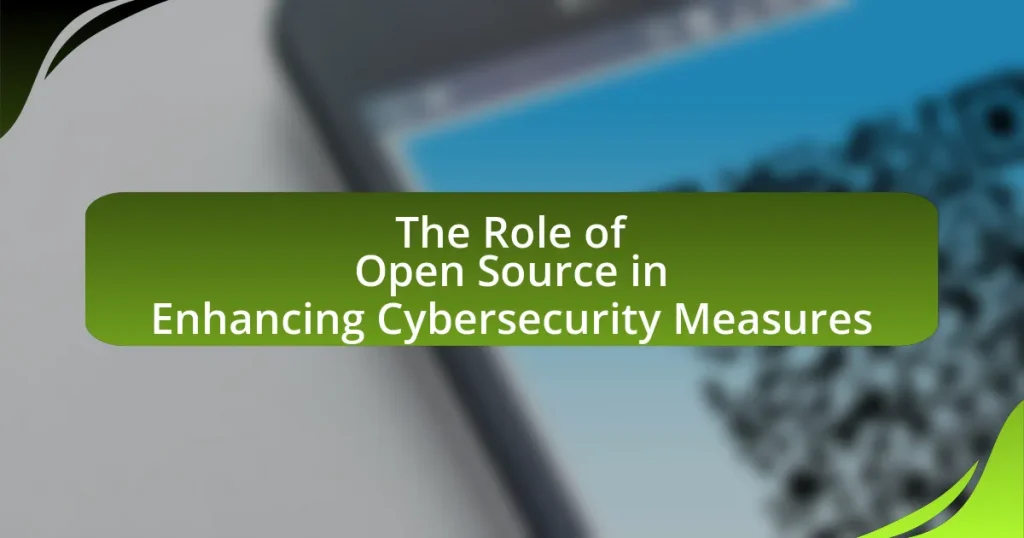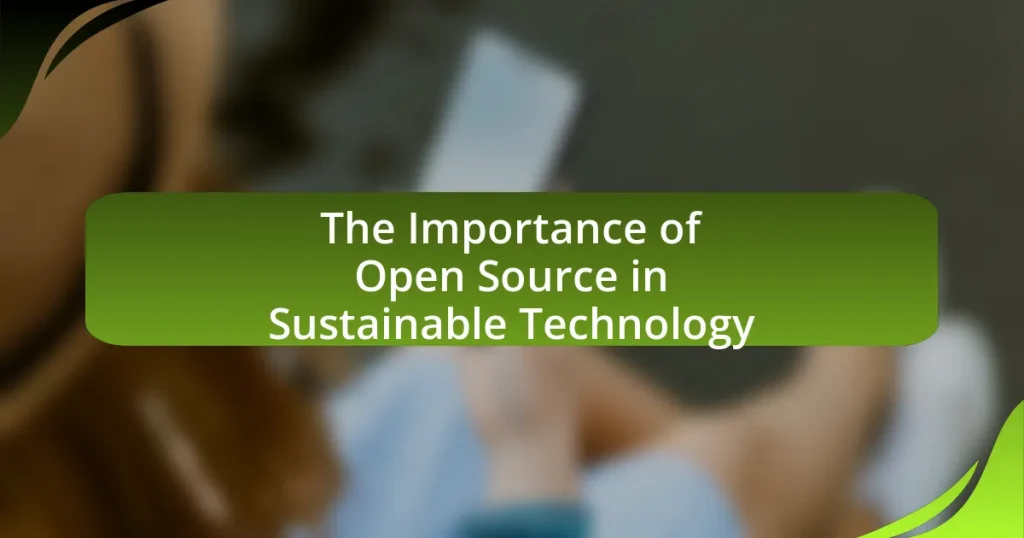Linux Expo serves as a vital platform for promoting open source solutions among nonprofit organizations, facilitating education, networking, and collaboration. The event offers workshops and presentations that inform nonprofits about the advantages of open source software, which can lead to significant cost reductions. Additionally, Linux Expo connects nonprofits with developers and advocates, fostering partnerships that enhance technological capabilities. Key initiatives include providing access to open source resources, tailored training, and networking opportunities, all aimed at empowering nonprofits to leverage technology effectively for their missions. The article will explore the specific roles and impacts of Linux Expo in supporting nonprofits and the broader open source community.

What is the Role of Linux Expo in Promoting Open Source for Nonprofits?
Linux Expo plays a crucial role in promoting open source for nonprofits by providing a platform for education, networking, and collaboration. The event facilitates workshops and presentations that educate nonprofit organizations about the benefits and implementation of open source software, which can significantly reduce operational costs. Additionally, Linux Expo connects nonprofits with open source developers and advocates, fostering partnerships that enhance technological capabilities. The expo also showcases successful case studies of nonprofits that have effectively utilized open source solutions, demonstrating tangible benefits and encouraging wider adoption.
How does Linux Expo support nonprofit organizations?
Linux Expo supports nonprofit organizations by providing them with a platform to showcase their projects and initiatives, facilitating networking opportunities with potential collaborators and supporters. The event often includes dedicated sessions and workshops tailored for nonprofits, focusing on open-source technologies that can enhance their operations. Additionally, Linux Expo may offer discounted or free exhibition space for nonprofit organizations, allowing them to reach a broader audience and gain visibility within the tech community. This support is crucial as it helps nonprofits leverage open-source solutions to improve efficiency and reduce costs, ultimately advancing their missions.
What specific initiatives does Linux Expo undertake for nonprofits?
Linux Expo undertakes several specific initiatives for nonprofits, including offering discounted or free access to open-source software, providing training and workshops tailored to nonprofit needs, and facilitating networking opportunities with industry experts. These initiatives aim to empower nonprofits by enhancing their technological capabilities and promoting the use of open-source solutions, which can significantly reduce operational costs. For instance, Linux Expo has partnered with various organizations to deliver workshops that educate nonprofits on leveraging open-source tools effectively, thereby fostering a community that supports sustainable technology practices.
How does Linux Expo facilitate networking among nonprofits?
Linux Expo facilitates networking among nonprofits by providing a dedicated platform for collaboration, knowledge sharing, and resource exchange. The event features workshops, panel discussions, and networking sessions specifically designed for nonprofit organizations, allowing them to connect with peers, share best practices, and explore partnerships. Additionally, the presence of open-source advocates and technology providers at the Expo enables nonprofits to access tools and solutions that can enhance their operational efficiency and outreach efforts. This structured environment fosters meaningful interactions, ultimately strengthening the nonprofit sector’s capacity to leverage open-source technologies for social impact.
Why is open source important for nonprofits?
Open source is important for nonprofits because it provides cost-effective access to technology, enabling organizations to allocate resources more efficiently. By utilizing open source software, nonprofits can avoid expensive licensing fees associated with proprietary software, allowing them to invest more in their core missions. For instance, a study by the Nonprofit Technology Network found that 70% of nonprofits reported using open source solutions to reduce costs and improve operational efficiency. This accessibility fosters innovation and collaboration, empowering nonprofits to customize tools to meet their specific needs without the constraints of vendor lock-in.
What advantages does open source software provide to nonprofit organizations?
Open source software offers nonprofit organizations significant advantages, including cost savings, flexibility, and community support. Nonprofits can access high-quality software without the burden of licensing fees, allowing them to allocate resources more effectively. Additionally, open source software can be customized to meet specific organizational needs, enhancing operational efficiency. The collaborative nature of open source fosters a supportive community that provides assistance and shared resources, which is particularly beneficial for nonprofits with limited technical expertise. These factors collectively empower nonprofits to achieve their missions more effectively while minimizing expenses.
How can nonprofits leverage open source solutions effectively?
Nonprofits can leverage open source solutions effectively by adopting software that is cost-free and customizable, allowing them to tailor tools to their specific needs. By utilizing platforms like WordPress for website management or CiviCRM for donor management, nonprofits can reduce operational costs while enhancing functionality. Research indicates that organizations using open source software can save up to 30% on IT expenses, enabling them to allocate more resources towards their missions. Additionally, engaging with the open source community fosters collaboration and access to a wealth of shared knowledge, further empowering nonprofits to innovate and improve their services.
What impact does Linux Expo have on the open source community?
Linux Expo significantly enhances the open source community by providing a platform for collaboration, education, and networking among developers, users, and organizations. This event fosters knowledge sharing through workshops and presentations, which help participants understand open source technologies and their applications. Additionally, Linux Expo attracts a diverse audience, including nonprofits, which can leverage open source solutions to reduce costs and improve efficiency. The event also showcases successful open source projects, inspiring new contributions and innovations within the community.
How does Linux Expo foster collaboration within the open source ecosystem?
Linux Expo fosters collaboration within the open source ecosystem by providing a platform for developers, organizations, and enthusiasts to connect, share knowledge, and collaborate on projects. The event features workshops, talks, and networking opportunities that encourage participants to engage with one another, facilitating the exchange of ideas and best practices. For instance, the presence of various open source projects and communities at the Expo allows attendees to learn from real-world applications and contribute to ongoing initiatives, thereby strengthening the collaborative spirit of the ecosystem.
What role does community engagement play in Linux Expo’s mission?
Community engagement is central to Linux Expo’s mission, as it fosters collaboration and knowledge sharing among open-source enthusiasts and nonprofits. By actively involving the community, Linux Expo creates an inclusive environment that encourages participation, innovation, and the dissemination of open-source solutions tailored for nonprofit organizations. This engagement is evidenced by the Expo’s workshops, presentations, and networking opportunities, which collectively enhance the skills and resources available to nonprofits, ultimately driving the adoption of open-source technologies in their operations.
How does Linux Expo connect nonprofits with open source resources?
Linux Expo connects nonprofits with open source resources by facilitating networking opportunities, providing access to open source software, and offering educational workshops. The event gathers various stakeholders, including nonprofit organizations, developers, and open source advocates, creating a collaborative environment where nonprofits can learn about and adopt open source solutions tailored to their needs. Additionally, Linux Expo often features presentations and demonstrations of open source tools that can enhance nonprofit operations, thereby directly linking these organizations to valuable resources that can improve their efficiency and impact.
What are the key takeaways for nonprofits attending Linux Expo?
Nonprofits attending Linux Expo should focus on networking opportunities, learning about open-source solutions, and understanding best practices for technology implementation. Networking allows nonprofits to connect with like-minded organizations and potential collaborators, enhancing their community engagement. Learning about open-source solutions provides nonprofits with cost-effective tools that can improve their operational efficiency, as many open-source software options are free or low-cost. Understanding best practices for technology implementation helps nonprofits effectively integrate these solutions into their existing systems, ensuring they maximize the benefits of open-source technologies. These takeaways are crucial for nonprofits aiming to leverage technology for greater impact in their missions.
What best practices should nonprofits follow when engaging with Linux Expo?
Nonprofits should prioritize collaboration, networking, and education when engaging with Linux Expo. Collaborating with other organizations and exhibitors can enhance visibility and foster partnerships that align with their mission. Networking with attendees and industry leaders provides opportunities for knowledge sharing and potential funding sources. Additionally, participating in workshops and sessions at the expo allows nonprofits to gain insights into best practices in open-source technology, which can be applied to their operations. These strategies are supported by the fact that successful engagement at expos often leads to increased community support and resource acquisition for nonprofits.
How can nonprofits maximize their experience at Linux Expo?
Nonprofits can maximize their experience at Linux Expo by actively engaging in networking opportunities, attending relevant workshops, and showcasing their projects. Networking allows nonprofits to connect with potential collaborators, funders, and volunteers, which can lead to valuable partnerships. Workshops provide insights into open-source technologies that can enhance their operations, while showcasing projects can attract attention and support from the community. According to the Linux Foundation, events like Linux Expo foster collaboration and innovation, making them ideal for nonprofits to leverage resources and knowledge in the open-source ecosystem.
What common challenges do nonprofits face in adopting open source solutions?
Nonprofits commonly face challenges such as limited technical expertise, funding constraints, and concerns about software support when adopting open source solutions. Limited technical expertise can hinder the effective implementation and maintenance of open source software, as many nonprofits may lack staff with the necessary skills. Funding constraints often restrict the ability to invest in training or hiring skilled personnel, making it difficult to leverage open source tools fully. Additionally, concerns about software support arise because nonprofits may worry about the availability of reliable assistance, which is crucial for troubleshooting and ensuring the software meets their needs. These challenges can impede the successful integration of open source solutions within nonprofit organizations.



